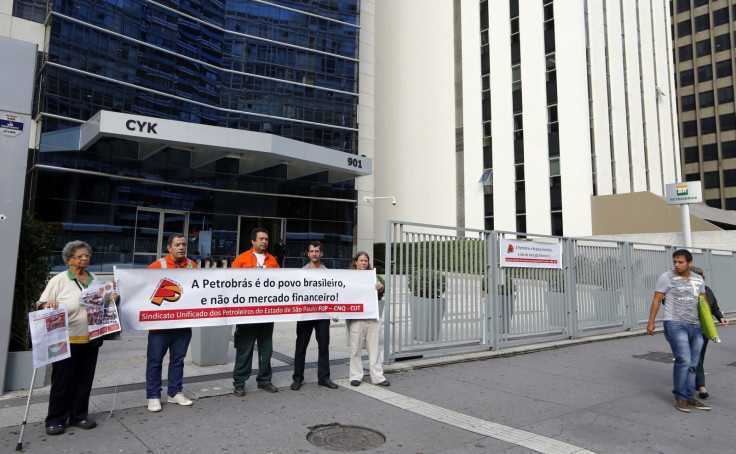Brazil's new multibillion-dollar tax fraud: What do we know?

As the multibillion-dollar corruption scandal at state oil company Petrobras continues to rattle Brazil's political establishment, IBTimes UK looks at the new tax fraud scheme at the Finance Ministry that emerged on Thursday 27 March and may have cost taxpayers up to 19bn reais (£3.94bn, $5.96bn).
Where?
Brazil's Finance Ministry's (Ministério da Fazenda') tax appeals board.
What?
Companies paid bribes to members of the CARF - a body within the Finance Ministry that hears appeals on tax disputes - of up to 10% to "manipulate" rulings in cases that involved between
1 and 3bn reais in taxes due, explained federal police inspector Marlon Cajado.
Who?
Seventy industrial, agricultural, civil engineering and financial companies, including banks, are being investigated on suspicion of bribing tax officials.
When?
Under investigation are cases that happened between 2005 and 2013, well before current Finance Minister Joaquim Levy took office.
What is the extent of the fraud?
So far, investigators are believe to have detected suspect appeals' rulings that may have cost the state 5bn reais in tax evasion, but other cases – currently being probed - could raise the total to 19bn reais.
Have there been any arrests?
Not yet, but early on Thursday 27 March, police seized documents and 1.3m reais in after raiding:
- the offices of the tax appeals board in the capital, Brasilia
- the homes and offices of tax consultants and lawyers suspected of acting as intermediaries
- the headquarters of Banco Safra, Brazil's 10th largest financial institution
What charges could suspects face?
Suspects could face charges of influence peddling, corruption, criminal conspiracy and money-laundering, which carry prison sentences of up to 50 years. Companies accused of paying to obtain favourable rulings, meanwhile, will have their cases reopened.
What impact could this have?
While current Finance Minister Levy will not be held responsible, this tax fraud scandal could worsen the political climate at a time when the popularity of President Dilma Rousseff's socialist government has plummeted, due in part to a stalling economy and the kickback scandal engulfing state-run oil company Petrobras, which has implicated her allies.
To counter rising discontent, Rousseff launched an anti-corruption offensive on 18 March.
The plan includes the criminalisation of slush funds - known in Portuguese as Caixa 2 - that are widely used by Brazil's political parties to finance their campaigns, as well as a decree implementing an anti-bribery law passed more than a year ago that stiffens fines for companies but has not been applied for a lack of finalised rules.
© Copyright IBTimes 2025. All rights reserved.





















